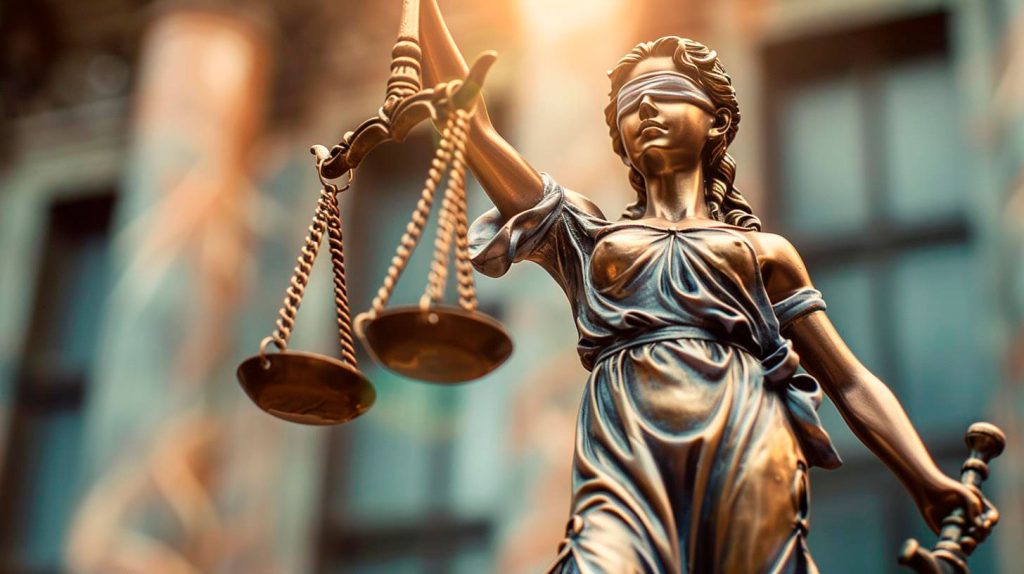
Seeking Legal Help for Unfair Credit Check Practices
Understanding Your Rights
Under the Fair Credit Reporting Act (FCRA), consumers have the right to dispute inaccurate information on their credit reports. This means that if a credit check was performed without your consent or if there are errors on your credit report, you have the right to take legal action. It is essential to understand your rights and seek legal help if you believe your rights have been violated.
The Impact of Unfair Credit Check Practices
Unfair credit check practices can have a significant impact on your financial well-being. If you are denied credit or a job because of inaccurate information on your credit report, it can be detrimental to your future prospects. Additionally, incorrect information on your credit report can affect your ability to obtain loans or secure housing.
According to recent statistics, approximately 20% of consumers have errors on their credit reports that could affect their credit scores. This highlights the importance of monitoring your credit report regularly and taking action if you suspect any inaccuracies.
How Legal Help Can Benefit You
Seeking legal help for unfair credit check practices can benefit you in several ways. A knowledgeable attorney can guide you through the legal process and help you understand your rights under the law. They can also help you dispute inaccurate information on your credit report and hold companies accountable for violating your rights.
By seeking legal help, you can potentially recover damages for any harm caused by unfair credit check practices. This can include compensation for lost opportunities, emotional distress, and other damages resulting from inaccurate credit reporting. Additionally, holding companies accountable for their actions can prevent future violations and protect other consumers from similar harm.
Unfair credit check practices can have a lasting impact on your financial well-being. If you believe your rights have been violated, it is essential to seek legal help to protect your interests. By understanding your rights under the law and working with a knowledgeable attorney, you can take action to dispute inaccurate information on your credit report and hold companies accountable for their actions.
Remember, you have the power to protect your credit and ensure fair treatment under the law. Don’t hesitate to seek legal help if you believe you have been a victim of unfair credit check practices.
Steps to Take if You Believe Your Credit Report Has Errors
If you believe that there are errors on your credit report, here are some steps you can take to address the issue:
1. Obtain a Copy of Your Credit Report
The first step in addressing errors on your credit report is to obtain a copy of it from the major credit reporting agencies such as Equifax, Experian, and TransUnion. You are entitled to one free copy of your credit report from each of these agencies every year, so take advantage of this and review your report thoroughly for any inaccuracies.
2. Dispute the Errors
If you find any errors on your credit report, such as incorrect account information, inaccurate payment history, or fraudulent accounts, you have the right to dispute these errors with the credit reporting agencies. You can do this by submitting a formal dispute letter detailing the inaccuracies and providing any supporting documentation to back up your claims.
3. Contact the Creditor
In addition to disputing the errors with the credit reporting agencies, it is also advisable to contact the creditor associated with the erroneous information on your credit report. Reach out to the creditor directly to explain the situation and request that they correct the inaccurate information they have reported to the credit bureaus.
4. Monitor Your Credit Report Regularly
After disputing the errors on your credit report, it is important to continue monitoring your credit report regularly to ensure that the inaccuracies have been corrected. By staying vigilant and reviewing your credit report on a consistent basis, you can catch any new errors that may arise and take action to address them promptly.
5. Seek Legal Assistance
If you are having trouble resolving errors on your credit report on your own, it may be beneficial to seek legal assistance from a qualified attorney who specializes in consumer credit rights. An experienced lawyer can help you navigate the dispute process, advocate on your behalf, and take legal action if necessary to correct the errors on your credit report.
Benefits of Correcting Errors on Your Credit Report
- Improving Your Credit Score: Correcting errors on your credit report can help boost your credit score by removing negative or inaccurate information that may be dragging it down.
- Increasing Access to Credit: A higher credit score can make it easier for you to qualify for loans, credit cards, and other forms of credit with better terms and lower interest rates.
- Protecting Your Financial Reputation: Ensuring the accuracy of your credit report helps protect your financial reputation and integrity, showing lenders that you are a responsible borrower.
- Preventing Identity Theft: Addressing errors on your credit report can help prevent identity theft and fraudulent activity by correcting inaccurate information that may be the result of someone else using your personal information.
Overall, taking proactive steps to address errors on your credit report is essential for maintaining good credit health and financial stability. By following the tips mentioned above and seeking assistance from a legal professional if needed, you can ensure that your credit report reflects accurate information and works in your favor.
Protecting Your Rights: What to Do if a Potential Employer or Landlord Misuses Your Credit Report
It is crucial to understand your rights and take action if you believe your credit report has been misused. This blog post will discuss what steps you can take to protect yourself in these situations.
Understanding Your Rights
Under the Fair Credit Reporting Act (FCRA), potential employers and landlords must obtain your written permission before accessing your credit report. They are also required to provide you with a copy of the report if it results in adverse action, such as denying you a job or rental property. If you believe your rights have been violated, you have the right to take legal action against the offending party.
What to Do if Your Credit Report is Misused
If you suspect that a potential employer or landlord has misused your credit report, there are several steps you can take to protect your rights:
- Request a copy of your credit report from the credit reporting agency that provided it to the employer or landlord.
- Review the report carefully for any inaccuracies or unauthorized inquiries.
- Contact the employer or landlord to discuss your concerns and request an explanation for their actions.
- If necessary, file a complaint with the Consumer Financial Protection Bureau (CFPB) or consult with a knowledgeable attorney who specializes in FCRA violations.
Legal Remedies for Credit Report Misuse
If you can prove that a potential employer or landlord violated your rights under the FCRA, you may be entitled to legal remedies, including:
- Financial compensation for damages caused by the misuse of your credit report.
- An injunction to prevent the employer or landlord from continuing to use your credit report improperly.
- Potential punitive damages if the violation was particularly egregious.
Protecting Yourself Moving Forward
To prevent future misuse of your credit report, consider taking the following proactive steps:
- Monitor your credit report regularly for any unauthorized activity or inaccuracies.
- Stay informed about your rights under the FCRA and other consumer protection laws.
- Be cautious about providing consent for credit checks and only do so when necessary.
It is essential to be vigilant about how your credit report is being used by potential employers and landlords. If you believe your rights have been violated, do not hesitate to take action to protect yourself. By understanding your rights and taking proactive steps to monitor your credit report, you can help prevent future misuse and protect your financial reputation.













Has your friend tried disputing the credit check with the company that denied her the loan? Sometimes they will reconsider their decision if presented with new information or evidence.
It’s crazy how these companies think they can just do whatever they want when it comes to credit checks. Your friend should definitely stand up for her rights and not let them get away with it.
Hey, so like my friend just got denied for a loan because of some shady credit check stuff. What can she do about it? Is that even legal?
Yeah, I heard that there are laws in place to protect consumers from unfair credit check practices. Your friend should definitely do some research and maybe even talk to a lawyer about this situation.
Man, that sucks. She should definitely look into her legal rights when it comes to credit checks. Companies can’t just be going around denying people based on unfair practices.
Make sure your friend reads up on the Fair Credit Reporting Act and the Equal Credit Opportunity Act. These laws can help protect consumers from unfair credit practices.
I know someone who had a similar issue and they ended up getting compensated for the unfair credit check that was done on them. It’s definitely worth looking into fighting back against these companies.
It’s important for your friend to keep all documentation related to the credit check and the loan application. This information could be crucial in proving that the credit check was done unfairly.
Yeah, that’s a good point. Your friend should definitely try to gather any information or evidence that proves the credit check was unfair or inaccurate. It could make a difference in her case.
She should also consider reaching out to a consumer rights attorney for guidance on how to proceed with challenging the unfair credit check. They can provide valuable legal advice and support in this situation.